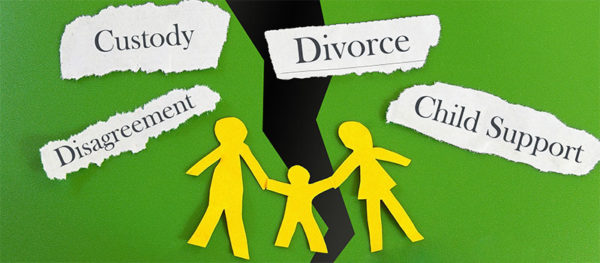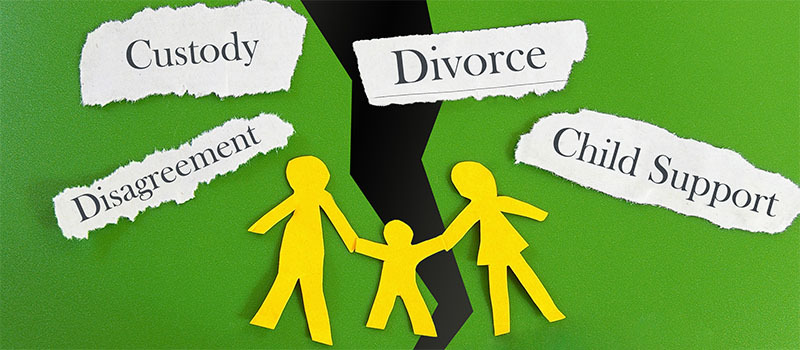
How to Get Child Support Arrears Dismissed
How to Get Child Support Arrears Dismissed
Upon becoming a parent, it is your responsibility to provide for your child. Some parents may struggle with that obligation, however, leading to them accumulating child support arrears.
There is no question that parents should do everything in their power to fulfill their obligations to their children. Still, we cannot ignore the reality that some parents have valid reasons for why they struggle to keep up with payments.
In this article, we’ll dive deeper into the subject of child support and its importance. We’ll also highlight the different reasons why parents cannot always pay on time and the penalties stemming from that. You’ll also learn more about the process of getting unpaid child support dismissed.
What Is Child Support?
To get things started, let us first define child support. In cases where the parents of an underage child or children are divorced or separated, they usually award one parent primary custody, while designating the other as the non-custodial parent. Crucially, non-custodial parents may still have legal custody over their child even if they don’t have physical custody, according to VeryWell Family.
Regardless of which party they award primary custody, both parents still need to bear the financial responsibility of raising their child or children. The state of Arizona requires both parents to offer “reasonable support” to their kids, who the courts regard as minors.
This is where child support comes into play.
Child support divides financial responsibility among the parents. While the parent with primary custody may be in charge of paying for their kids’ daily expenses, the other parent must still provide timely payments.
The timeliness of child support payments can vary depending upon what the parents agreed upon. Often, they pay monthly. That’s probably due in no small part to many child support payments being taken directly from paychecks.

How Are Child Support Payments Used?
The parents will have to determine how to use the child support payments. You probably know what to expect here, though.
You can use child support payments for food, school-related expenses, medical bills, clothing, toys, and housing. If there are activities that a child wishes to try, the support payments can also go toward them.
Basically, if you use the payments for something the child benefits from, no issues will arise.
Custodial parents must refrain from using the child support payments on themselves. If the custodial parent uses the support payments on their own expenses, they may run into trouble with their co-parent and possibly the law.
How Are Child Support Payment Amounts Calculated?
There is no one set of guidelines followed by all the states in the country when it comes to determining how much child support a non-custodial parent owes.
In the state of Arizona, some of the factors considered include the child’s medical bills, childcare costs, and education expenses. The state also refers to a Schedule of Basic Support Obligations, which accounts for the number of children and the adjusted gross income of both parents. The child support payments will also be proportionate to the salaries the parents are taking home.
Figuring out the right amount of child support payments you are obligated to make and negotiating with the other party can be complicated undertakings. That’s why many parents enlist the help of experienced lawyers in these scenarios.
What Are Child Support Arrears?
Child support arrears refer to unpaid child support payments. There are also two types of child support arrears.
Assigned Child Support Arrears
First off, you have what is known as assigned child support arrears. Assigned child support arrears pile up when the non-custodial parent fails to fulfill his/her obligation while the custodial parent is on public assistance. I In a case such as that, the non-custodial parent owes money to the state as opposed to the custodial parent since the government is supporting their child.
When accounting for assigned child support arrears, there is no guarantee that the custodial parent will receive any money from the payments made by the non-custodial parent. The non-custodial parent’s priority is to pay the state in full. If there is money left over once they pay the arrears, the custodial parent will receive that amount.
Non-custodial parents who have accumulated assigned child support arrears could find themselves in a difficult position. The good news for them is that states are willing to negotiate their debts.
Unassigned Child Support Arrears
Unassigned child support arrears refer to the payments a non-custodial parent owes directly to their co-parent. This time around, the government will not receive any money from the provided back payments.
Unassigned child support arrears don’t necessarily have to be paid by the non-custodial parent provided that the parent with primary custody agrees to waive those debts. We’ll get into the process of having those child support arrears waived later in this article.
Why Do Parents Fall Behind on Child Support Payments?
We first want to reiterate in this section that it is a parent’s job to financially support their child. Becoming a parent is an enormous responsibility, and you must be ready for everything that entails before taking the plunge.
Unfortunately, circumstances do change. Some parents may want nothing more than to support their children, but the reality of their situation may prevent them from doing so.
Included below are some of the reasons why non-custodial parents may fall behind on their child support payments.
The Non-Custodial Parent No Longer Has a Job
Losing a job is a nightmarish scenario for many. Suddenly, the source of income for food, rent money, and other essential expenses are gone. Parents will also have a tough time keeping up with their child support payments if they’ve lost their job.
The Non-Custodial Parent’s New Job Pays Less
Non-custodial parents may have jobs but cannot meet the terms of the agreement with the custodial parent. This often happens when the non-custodial parent gets demoted at work or if they’re starting a new job that doesn’t pay as well.
The issue here is that the agreement both parties signed up for previously is no longer an accurate representation of the parents’ current financial situations. Now that one party is making significantly less money, they cannot abide by the guidelines set in the agreement.
The Non-Custodial Parent Has a Serious Medical Condition
The non-custodial parent’s medical condition could also explain why they can no longer make payments on time. The parent in question may have recently suffered a heart attack and is currently unable to work. It’s also possible that they had to undergo emergency surgery that has impacted their finances.
A chronic illness affecting the non-custodial parent may also worsen over time. Because of that, their medical expenses may increase, thus making it harder for them to fulfill their obligation to their child.
The Non-Custodial Parent Is Unable to Pay the Arrears Due to Interest Accrued
Yes, interest can indeed accumulate on overdue child support payments. The interest rates can vary depending on the state.
Some states like Connecticut, Delaware, and Hawaii don’t add interest to child support arrears, according to the National Conference of State Legislatures. Meanwhile, states such as Colorado, Kentucky, and Washington impose an annual interest rate of 12 percent. In Arizona, an interest rate of 10 percent per annum is on arrears.
As a non-custodial parent working to make up for unpaid child support, you may be caught off guard by the accumulated interest. You may have assumed that you had enough money to cover your missed payments only to find out later that the added interest means you have more work to do.
What Are the Penalties Imposed on Parents Who Cannot Make Child Support Payments?
Once they determine that you’re missing child support payments and there’s no valid reason, you can find yourself facing serious consequences. Debt.org has highlighted some of the penalties.
A Bad Credit Score
Remember that loan you were planning to take out to start your dream business? Well, you may need to bid farewell to that dream if you’ve been late on your child support payments.
The government allows credit agencies to know if you’re missing those payments. The agencies may adjust your credit score to reflect that. You’ll probably have a hard time securing a loan, and even if you do, the terms may be difficult for you.
The Loss of a Driver’s License
Getting around town could become an ordeal unto itself if you start missing child support payments. The state may suspend your driver’s license, and you may need to pay up before you get it back.
Your Finances Are Targeted
The government has a way of making unwilling debtors pay up. In the case of parents not paying child support, the government can order wages to be garnished or seize tax returns.
A Jail or Prison Sentence
Among the penalties people may be hit with if they fail to comply with the law is incarceration. Don’t assume that you can avoid that kind of punishment even if we’re only talking about unpaid child support.
Since the courts mandate child support payments, you could find yourself in legal hot water if you fail to pay. On top of that, accumulating a hefty bill for child support owed could land you in prison.

How Do You Get Your Child Support Arrears Waived?
We’ve already highlighted some of the reasons why parents can’t pay child support as well as the penalties they may face for their failure to comply with a government order. You probably want nothing to do with prison, so the best thing you can do if you cannot make payments any longer is to get the arrears waived.
Here is how you get unassigned child support arrears waived or reduced:
- Get in Touch with Your Co-Parent – Start the process by contacting your co-parent and explain why you no longer can make the payments in your agreement. You will need them to agree to the revised terms, or else nothing will happen.
- Create a New Written Agreement – Together with your respective lawyers, you and your co-parent must now work on crafting a revised agreement. The lawyers will help you avoid mistakes and ensure that the document is ready for the next step.
- File the New Agreement with the Court – Now that the new agreement is ready, you can file it with the court. Remember to include the explanations for why you’re revising the agreement in the document.
- See What the Court Decides – There is no guarantee that the court will sign off on the revised agreement. As far as the court is concerned, their job is to see that you meet the best interests of the child or children.
- Tweak the Agreement and Re-file – In cases where the court didn’t approve the revised agreement, both sides can continue negotiating until they create something better. Now, here is how you get assigned child support arrears waived:
- Enter Waiver Negotiations with the State – Instead of making your case to your co-parent, your main task is to convince the government that the agreement must be changed. Continue negotiating together with your lawyer until you can get the assigned arrears waived or at least reduced.
- Inform Your Co-Parent – Don’t forget to inform your co-parent about the steps you’re taking to have your arrears waived or reduced. While evaluating your request, the court may get in touch with your co-parent, and the information they provide may influence the court’s decision.
- Follow the Court’s Conditions – According to LegalZoom, the court may require you to meet certain conditions if you want your debt waived or reduced. Understand those conditions well and make sure you follow them as best you can.
You’ll have a tough time negotiating agreements regarding child support and child support arrears on your own. It’s best to partner up with a lawyer who has experience regarding these cases. Work with us at the Schill Law Group and we will do everything in our power to secure the best agreement for you, your co-parent, and your children.






